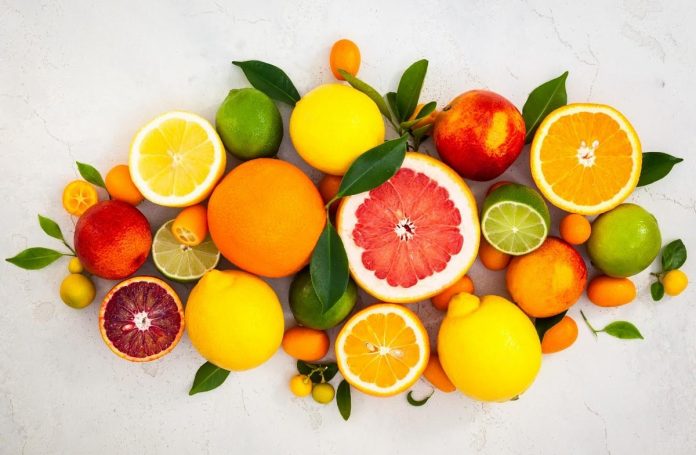
Kachesa’s passion for citrus | Celebrating Being Zimbabwean
By Dr Tony Monda
DECEMBER to March is fruit time in Zimbabwe; from the indigenous mazhanje, matamba, hute and matohwe to mangoes, paw-paws, oranges, naartijies, lemons, tangerines, grapes, peaches and nectarines, among others.
While the land reclamation of 2000 was a noble and necessary exercise for the rightful empowerment of the majority, it did not provide the operative means for indigenous farmers to undertake specialised agronomy, such as pomology, citriculture, viticulture and wheat production.
Today, although Zimbabwean agricultural crops such as maize, tobacco, soya and cotton, are marginally buoyant, Zimbabwe has had to import wheat and maize due to drought, but mostly due to the lack of knowledge and technical expertise.
Most notably, the once thriving citrus industry in Zimbabwe is now at an all-time low due to similar factors.
Recently, during an interview with an internationally certified Zimbabwean horticulturalist Mambo Sharpson Kachesa of Karoi who specialised in citriculture for over two decades explained to me that Mashonaland West was once a rich vein of citrus plantations generating a billion-dollar citrus export industry.
However, due to deterioration of citrus plantations, particularly in Mashonaland Central and West, Zimbabwe has lost this lucrative industry.
The areas around Mazowe, Mvurwi, Magunje, Shamva, Karoyi, Mhangura and Chinhoyi share similar altitudes, rainfall patterns and temperatures conducive to citrus farming and are known traditionally for orange cultivation in Zimbabwe.
“Citrus production is a highly specialised field that does not accommodate half measures or austerity. One needs sufficient water to irrigate the orchard. Nutritious arable soils, adequate supplies of fertiliser and a judicious pest control regime are necessary to be able to yield export-quality oranges,” said Kachesa.
“Additionally, discipline and dedication to the field of citrus is indispensable,” he added.
The certified citriculturist was a supervisor and lead citrus grower at two large citrus estates.
An expert at citrus scouting, aerometric soil assessments, field analysis as well as irrigation-placement and pest-control, the hands-on citriculturist has applied for land and the financial capacity to fulfill his passion, to play his part to help revive Zimbabwe’s lucrative golden fruit industry.
He feels Government needs to support individual human capital with the knowledge and capacity to revive specialised agronomy such as citrus.
As a specialised field, citriculture in Zimbabwe has lost its Southern African and world market share.
The redundancy of expertise in agriculture is a worrying trend in Zimbabwe, especially when agronomic personnel with knowledge are underutilised.
Hence the preservation of knowledge and citrus expertise are essential for Zimbabwe to revive this lucrative field.
“The international citrus industry has stringent standards of operations and quality controls,” explained Kachesa.
“But Zimbabwe once held its ground with citrus producers in South Africa, Spain, Italy, Cyprus, Israel, US, South America and Australia,” he continued.
Kachesa was born in 1968, in Magunje, Karoi, in the Chitemerere Village, and attended Charles Clark Secondary School in Karoi.
After leaving school, he worked for a period in the construction industry where he specialised in masonry building and stonework.
His love for the land, however, drew him to agriculture and was soon employed on two major citrus estates in Mhangura and Shamva, where he garnered valuable experience while his love for citrus farming which includes lemons, grapefruit, naartijies and tomatoes thrived.
Apart from citrus, Kachesa is also experienced in growing various horticultural produce.
Unassuming and extremely knowledgeable, Kachesa is armed with institutional memory, history and technical knowledge of the citrus industry in Zimbabwe where orange plantations have thrived since 1903; almost in tandem with the establishment of the golden leaf [tobacco] industry.
“Mashonaland West and Mashonaland Central,” said Kachesa, “provided there is adequate water, irrigation and mechanisation, have the best soils and climate for the proper and profitable cultivation of oranges throughout the year.”
Citrus contain beneficial vitamins, especially vitamin C that deals with colds and flus.
According to Kachesa, a family of six would normally consume 4 380 oranges annually, and for a population of 15 million, Zimbabwe needs a minimum of 30 million oranges a year for local consumption only, excluding processed oranges required for fruit juices, cordials and export orders.
Like most horticultural produce, citriculture is a highly specialised, capital and time intensive industry that can yield lucrative returns for generations.
However, trial and error farming will not produce the high-quality oranges Zimbabwe became renowned for, nor the internationally famed original Mazoe Orange enjoyed by generations.
Kachesa believes that Magunje, his rural home area, has the soils and adequate water sources and is well suited for citrus cultivation and that more people with the requisite knowledge in their chosen agronomic fields should be allotted horticultural space for the benefit of economic development, employment creation and food security in Zimbabwe.
Today, Kachesa dreams of owning a sizable orchard of his own in Magunje, where he can impart his love and knowledge of citrus cultivation to the next generation of farmers for the revival of this once lucrative ‘golden’ sector of the Zimbabwean economy.
Dr Tony M. Monda is currently conducting veterinary epidemiology, agronomy and agro-economic and food security research in Zimbabwe and Southern Africa. E-mail [email protected]











































